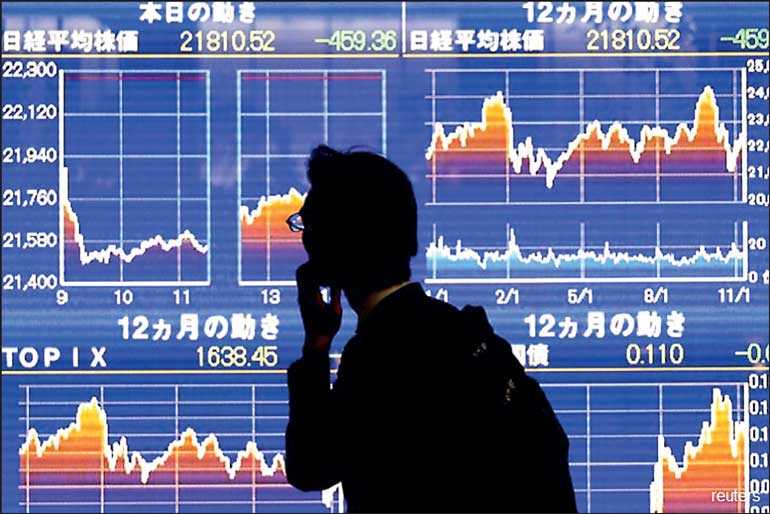Wednesday Feb 25, 2026
Wednesday Feb 25, 2026
Wednesday, 13 February 2019 00:00 - - {{hitsCtrl.values.hits}}

TOKYO (Reuters): Asian shares edged up on Tuesday as investors hoped a new round of US-China trade talks would help to resolve a dispute that’s dented global growth and some corporate earnings.
Improving market sentiment was news that US lawmakers reached a tentative deal on border security funding that would avert another partial government shutdown due to start on Saturday. The S&P 500 e-mini futures were up more than 0.5%.
MSCI’s broadest index of Asia-Pacific shares outside Japan added 0.3%.
The Shanghai Composite Index rose 0.6%, South Korea’s KOSPI climbed 0.4% and Australian shares were up 0.4%.
Japan’s Nikkei advanced 2% after a market holiday on Monday, lifted by a weaker yen.
US and Chinese officials expressed hopes the new round of talks, which began in Beijing on Monday, would bring them closer to easing their months-long trade war.
Beijing and Washington are trying to hammer out a deal before a 1 March deadline, without which US tariffs on $200 billion worth of Chinese imports are scheduled to increase to 25% from 10%.
“There will be no winner in a trade war. So at some point they will likely strike a deal,” said Mutsumi Kagawa, Chief Global Strategist at Rakuten Securities in Tokyo.
The trade dispute has already started to impact global growth, hitting businesses confidence, factory activity and disrupting supply chains. The worry is that a protracted Sino-US tariff row could severely hurt corporate earnings globally.
Analysts are now expecting US corporate earnings for the current quarter to drop 0.2% from last year, which would be the first contraction since the second quarter of 2016.
In the currency market, the dollar held firm, having gained for eight straight sessions against a basket of six major currencies until Monday, its longest rally in two years.
Although the Federal Reserve’s dovish turn dented the dollar earlier this year, some analysts noted the US currency still has the highest yield among major peers and that the Fed continues to shrink its balance sheet.
“We see the dollar’s strength essentially stemming from the Fed’s balance sheet reduction,” said Makoto Noji, chief currency and foreign bond strategist at SMBC Nikko Securities.
Growing evidence of a loss of momentum in the global economy has also lifted the US currency, most recently led by the European Commission’s downgrade of growth in Europe, making the dollar a better investment option by default.
The dollar’s index rose to its highest level in almost three months, at 97.123, on Monday. It last stood at 97.042.
In contrast, the euro dropped to as low as $1.1267, its weakest in 2-1/2 months, and last traded at $1.1285.
The dollar popped up to a six-week high of 110.55 yen.
Oil prices ticked up after falls on Monday as traders weigh support from OPEC-led supply restraint and a slowdown in the global economy.
US crude futures traded at $52.56 per barrel, up 0.3%. Brent crude rose 0.6% to $61.87 per barrel.